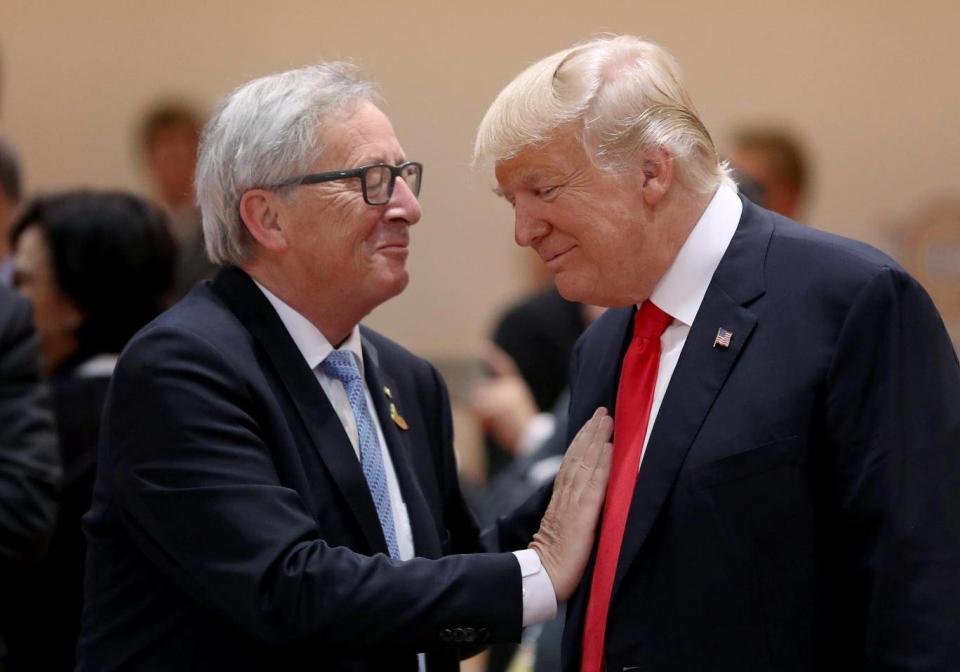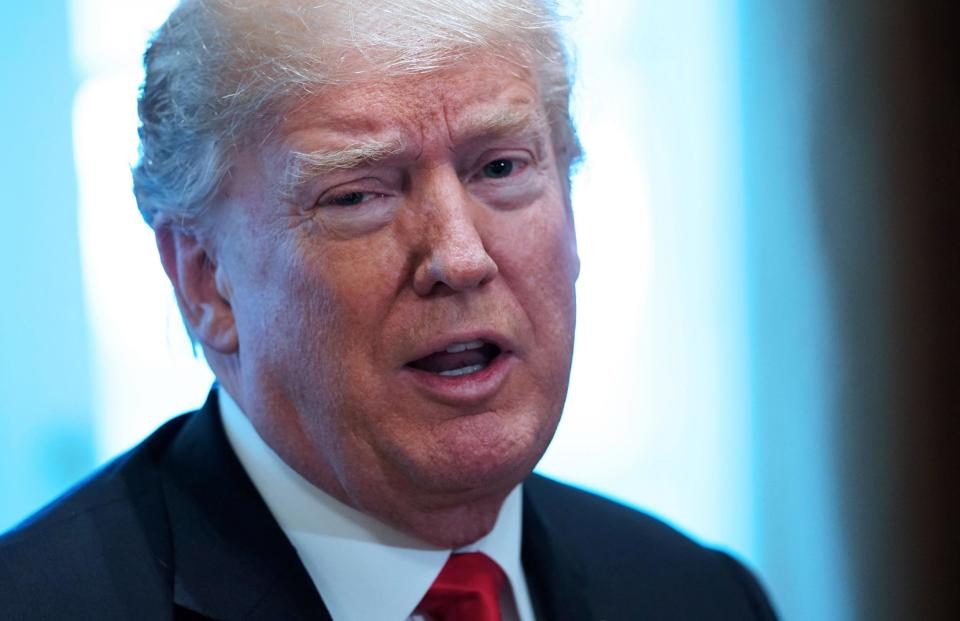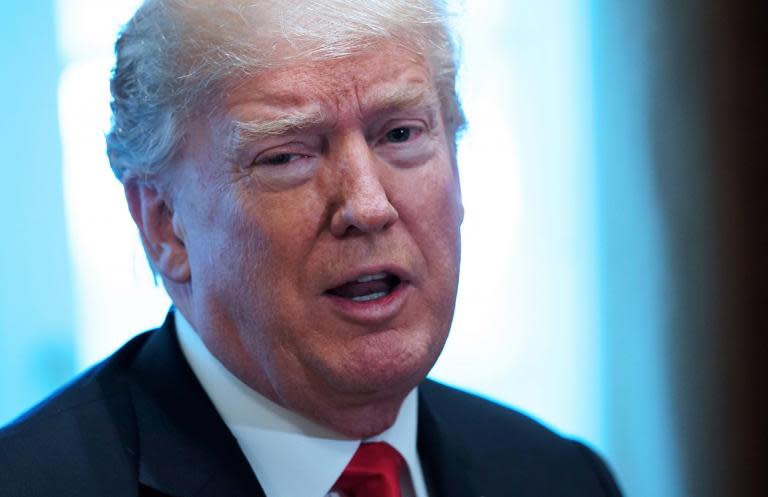EU says it will hit back at Donald Trump with tariffs on Harley Davidsons, Bourbon whiskey, and Levi’s jeans
The European Union is to slap tariffs on stereotypical American products such as Harley Davidson motorbikes, Levi’s blue jeans and Bourbon whiskey in retaliation for Donald Trump’s new import tariffs, in a major escalation of the brewing trade war between the two powers.
European Commission president Jean-Claude Juncker told German television that the EU would not “put our head in the sand” after Mr Trump announced the introduction of a 25 per cent “America First” import tariff on steel and 10 per cent on aluminium.
“We will put tariffs on Harley-Davidson, on bourbon and on blue jeans – Levis,” Mr Juncker said on Friday speaking on German television.
“We are here and they will get to know us. We would like a reasonable relationship to the United States, but we cannot simply put our head in the sand.”
The European Commission said last night that it would formally announce details of policies targeting the US “in the next few days” to “rebalance” the global trade playing field after Mr Trump’s move.
It also said it would raise a dispute over Mr Trump’s new policy at the World Trade Organisation in Geneva.
Mr Trump tweeted today that trade wars were “good, and easy to win”, before turning his attention to attacking actor Alec Baldwin for his impersonation of the US president on a popular US late-night TV show.

Returning to the subject of trade later in the day, he added: “We must protect our country and our workers. Our steel industry is in bad shape. IF YOU DON’T HAVE STEEL, YOU DON’T HAVE A COUNTRY!”
During his presidential campaign Mr Trump claimed foreign countries were “dumping vast amounts of steel all over the United States, which essentially is killing our steelworkers and steel companies”.
Mr Trump’s trade war threats also hampered any hopes of substantial progress in current talks with Canada and Mexico to rework the North American Free Trade Agreement
Canadian Prime Minister Justin Trudeau said any tariffs on steel and aluminium imports would be “absolutely unacceptable” and vowed to continue to engage with US officials on the issue.
Many economists have said that instead of increasing employment, price increases for consumers of steel and aluminium such as the auto and oil industries would destroy more US jobs than they create.
The International Monetary Fund also expressed concern about the proposed tariffs and said they likely would damage the US economy as well as the economies of other nations.
Mr Trump has a history of criticising EU trade policy and in January of this year he said had “a lot of problems” with how the trade bloc behaves.
Last month Mr Trump also slapped “America First” tariffs on imported washing machines and solar panels, moves that most heavily affected China and South Korea.
China has warned that that Mr Trump’s vow to impose high tariffs on steel and aluminum would have a “huge impact” on the global trading order and said Beijing would work with other nations to protect its interests.
A Commerce Ministry official said late on Friday the plan would “seriously damage multilateral trade mechanisms represented by the World Trade Organisation and will surely have huge impact on normal international trade order.”
“If the final measures of the United States hurt Chinese interests, China will work with other affected countries in taking measures to safeguard its own rights and interests”, Wang Hejun, head of the ministry’s trade remedy and investigation bureau, said in a statement on the ministry’s website.
Chinese leaders have threatened in the past to retaliate if Mr Trump raises trade barriers, but now need to weigh whether to back up those threats with action and risk jeopardising US market access for smartphones and other exports that matter more to their economy than metals.
“China will definitely respond. It doesn’t want to be seen as weak. But it will be relatively restrained”, said economist Louis Kuijs of Oxford Economics. “They don’t want to be seen as a party that is wrecking the international trading system.”
Additional reporting by agencies

 Yahoo News
Yahoo News 


